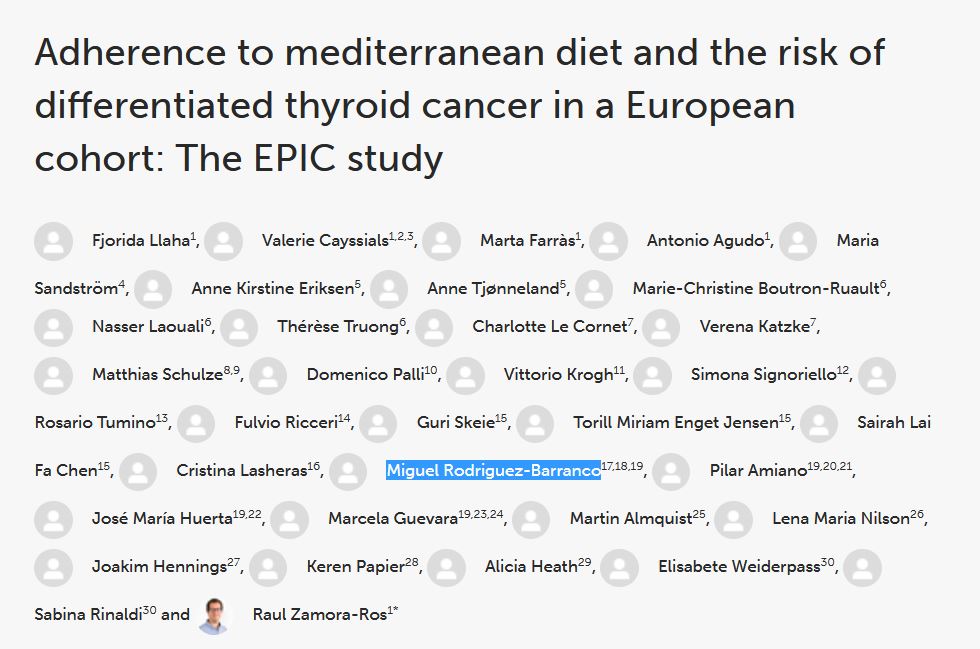
Background: The Mediterranean diet (MD) has been proposed as a healthy diet with a potential to lower the incidence of several types of cancer, but there is no data regarding thyroid cancer (TC). We investigated the association between MD adherence, and its components, and the differentiated TC risk within the European Prospective Investigation into Cancer and Nutrition (EPIC) cohort.
Methods: Over 450,000 men and women from nine European countries were followed up for a mean of 14.1 years, during which 712 differentiated TC cases were identified. Adherence to MD was estimated using the relative MD (rMED) score, an 18-point scale including alcohol, and the adapted rMED (arMED) score, a 16-point scale excluding alcohol. Hazard ratios (HRs) and 95% confidence intervals (CIs) were estimated using Cox regression models adjusted for potential confounding factors.
Results: Adherence to the arMED score was not associated with the risk of differentiated TC (HRhigh vs. low adherence = 0.94, 95% CI: 0.70–1.25; p-trend 0.27), while a suggestive, but non-statistically significant inverse relationship was observed with rMED (HRhigh vs. low adherence = 0.88, 95% CI: 0.68–1.14; p-trend 0.17). Low meat (HRlow vs. high meat intake = 0.81, 95% CI: 0.67–0.99; p-trend = 0.04) and moderate alcohol (HRmoderate vs. non−moderate intake = 0.88, 95% CI: 0.75–1.03) intake were related with lower differentiated TC risk.
Conclusions: Our study shows that a high adherence to MD is not strongly related to differentiated TC risk, although further research is required to confirm the impact of MD and, especially, meat intake in TC risk.


